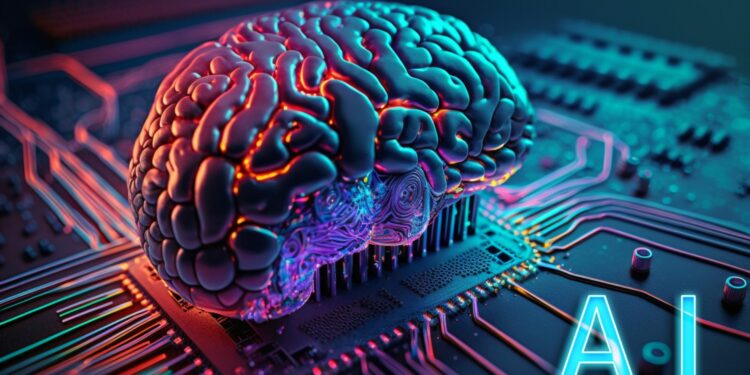How AI Can Unlock The Digital Economy For The Disadvantaged
Jidapa Nitiwirakun is a 21-year-old Thai woman with muscular dystrophy. I met her through our Skills for Jobs programme and she told me her story. She has always used a wheelchair and is progressively losing muscle strength each year. Growing up, it wasn’t always clear what career paths were open to her in her native coastal province.
However, digital skills training gave Nitiwirakun mobility in other meaningful ways. She works remotely, lives independently and financially supports her family. She continues volunteering at her community college and has even sent her brother to university.
Technology has driven much of Asia’s growth over recent decades, yet uneven innovation has left marginalized groups behind. That’s why I’ve long believed that technology companies have a responsibility to help address this divide.
Stories like Nitiwirakun’s show us technology’s potential to bring economic opportunity within reach for traditionally disadvantaged groups and the one in four youths in the region without employment, education or training.
AI has the power to unlock the digital economy for the disadvantaged. Let me share two more stories of how AI has been leveraged in this way.
Enabling communication for underserved communities
Throughout her life, Hiromi Soeda struggled to keep her jobs at a hair salon, a manufacturing plant and several restaurants.
At the age of 46, she was diagnosed with Auditory Processing Disorder (APD), a poorly understood condition where the brain has difficulty understanding and interpreting sounds, including spoken words.
Like many who are diagnosed later in life, Soeda finally had answers to why employers and colleagues, family and friends disengaged because they confused her incomprehension for apathy.
Roughly 690 million people are living with disabilities in Asia-Pacific; however, this number might not reflect those yet to be diagnosed or whose impairments are not easily defined.
AI’s adaptability could be life-altering for these groups. Text-to-speech allows people to listen to written articles or academic reports; speech-to-text will enable people to read live captions during online meetings or news broadcasts; and image-to-text allows people to understand the contents of images they might not be able to see.
Soeda’s life changed when she used Aisin’s YYProbe speech-to-text app. Initially created as a tool to summarize business meetings, it was particularly useful for deaf or hard-of-hearing employees, leading to a wider public launch.
In one instance, Soeda used YYProbe to follow a doctor’s consultation on her mother’s illness through a transcript she later shared with her sister, who couldn’t be present. These days, Soeda runs an APD support group that works with schools, healthcare providers and app developers to advocate for greater accessibility.
AI can thus tailor information to user needs, easing daily life for those lacking support.
Supporting educators to nurture future talent
Ravindra K. Nagaiah has been a science and mathematics teacher in an Indian public school for 15 years. In 2007, he left behind a successful software business in the United States and returned home to stop the exodus of students from India’s under-resourced public schools.
The strain on public school educators impacts teaching quality, pushing more families to costly private schools. This, in turn, exacerbates India’s income inequality, something the world’s largest democracy cannot afford to leave unchecked.
However, there is only so much individual teachers like Nagaiah can do during a school day. They face daily challenges adapting government curricula to limited resources and mixed-grade classrooms.
In his village school, Nagaiah typically spends 40 minutes on a single lesson plan. But thanks to Sikshana Foundation’s Shiksha Copilot teaching assistant, he can now draw up lesson plans in 10 minutes. He isn’t alone – 90% of teachers using Shiksha Copilot reported only needing to make minor modifications to the Copilot’s output.

Indian teachers at a school using Shiksha Copilot.Image: Microsoft
Nagaiah can engage students and maintain their passion for learning in the time he saves. Shiksha Copilot shows what’s possible when AI is used to augment people’s work in fields from education to agriculture, allowing them to do more with less despite resource constraints that remain out of their control.

Children diligently studying at a school in India using Shiksha Copilot.Image: Microsoft
Helping people take the first step on the AI ladder
At scale, AI offers Asian nations a chance to reverse inequalities and enhance societal vibrancy.
While the World Economic Forum predicts job losses by 2025, it also forecasts 97 million new digital skill-based jobs. It’s our collective responsibility to ensure the workforce can participate in these new jobs.
To do that we need tech companies, governments and industry to invest in digital skilling. Investment in digital skills – especially through private-public partnerships – creates a train-the-trainer effect. It’s a force multiplier to ensure we reach every citizen in this fast-growing region.
Stories like those of Nitiwirakun, Soeda, and Nagaiah represent many we hear at Microsoft, and the world needs more of them. Thanks to their drive to pay it forward, I have no doubt that we will have them.








